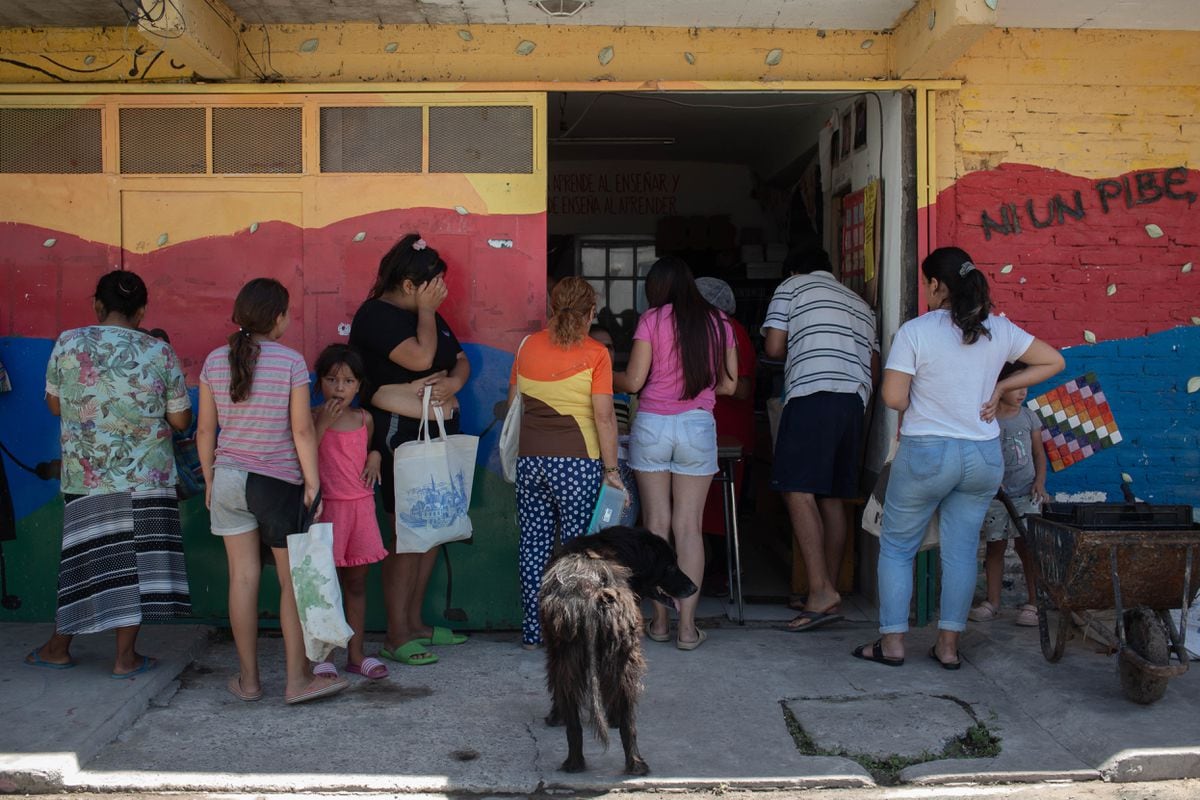Icon: enlarge
The civil war is still raging in Yemen: armed men in Sanaa
Photo: MOHAMMED HUWAIS / AFP
Icon: enlarge
Coordinates aid for Yemen on behalf of the UN: Mark Lowcock
Photo: Salvatore Di Nolfi / dpa
The United Nations Emergency Relief Coordinator, Mark Lowcock, 58, believes in a successful peace process for the war-torn country for the first time.
He explains why it is so important for rich countries to donate to the suffering population at the UN donor conference on Monday.
SPIEGEL:
What is the current situation in Yemen?
Lowcock:
It's never been worse.
People have no jobs and no money.
Their farms are bombed, their fishing boats destroyed.
They are starving, and we too have no more money to feed the people.
Of the almost thirteen million Yemenis whom we helped with food in 2019, we can only provide for nine million today.
The famine is back.
"We have no more money to feed the people."
Mark Lowcock
SPIEGEL:
What do the countries in the West get out of it, other than a clear conscience, if they donate to the United Nations Relief Conference on Monday?
Lowcock:
It's about regional stability.
We know from history that famines are deeply imprinted on the memory of a country.
And we also know what effect it will have on the future of relations between the countries involved in the conflict.
The decision to help is made by very powerful people over very powerless people.
more on the subject
Icon: Spiegel PlusYemen: "Violence breeds violence"
Icon: Spiegel Plus A different kind of travel report: The way back is the destinationBy Christoph Reuter
Icon: Spiegel Plus Province in Yemen: A place of hope between civil war and epidemics A report by Christoph Reuter
SPIEGEL:
How much money is needed for Yemen?
Lowcock:
The biggest problem is that international donors no longer want to donate to Yemen.
The countries of the Gulf region drastically cut their funds last year.
If the aid programs are to continue and the people in Yemen are not to die, we need $ 3.85 billion this year.
That's very little compared to the myriad billions governments are spending right now to protect their economies.
SPIEGEL:
The supermarkets in the old capital Sanaa are full.
Where is the hunger greatest?
Lowcock:
If you have money, you can buy anything there.
It is true that we have more supply problems in the north, in the areas controlled by the Houthi.
But security is also a challenge with thirty different front lines.
This makes it difficult to get help to those who need it.
SPIEGEL:
There is currently fighting in Yemen over the gas-rich region around Marib.
Witnesses speak of a bloodbath.
When will the war end?
Lowcock:
I think that with the new US administration of President Joe Biden, the Yemenis have for the first time a serious chance of a peace process.
The Saudi Kingdom has welcomed Washington's mediation initiative.
The coalition ...
SPIEGEL:
... a military alliance of predominantly Arab states led by Saudi Arabia ...
Lowcock:
... tried everything possible to win this war against the
Houthis for
almost six years, sometimes with more air strikes, sometimes with more economic
blockades
, none of it worked.
SPIEGEL:
Are the Saudi Arabs tired of war?
Lowcock:
Riyadh has been ready to find a solution for some time.
UN Special Envoy Martin Griffith is currently in the region for talks.
The goal is a process that recognizes the factual realities in the country.
It's about agreeing a nationwide ceasefire.
SPIEGEL:
What could peace look like?
Lowcock:
Of course, Riyadh does not want the
Houthis
to continue firing rockets into Saudi Arabia from Yemen.
But there are still old tribal conflicts.
The "Islamic State" and al-Qaeda are active.
Yemen would probably not become a second Denmark overnight.
But the country has a real chance of escaping the crisis.
Icon: The mirror









